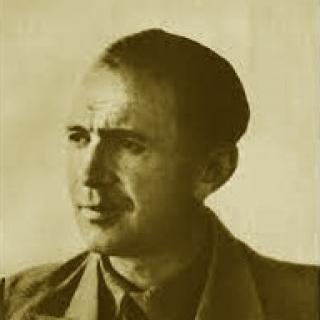Konrad Otto Anderegg was born on 31 May 1898 in the village of Nesslau, in north-eastern Switzerland. Soon after completing his business studies, he packed his bags and headed abroad, landing in Sumatra, part of the Dutch East Indies. He worked on rubber and tea plantations, first as an assistant and eventually as the director. He took advantage of this opportunity to explore personal interests such as ethnography and civilizational history. For instance, he spent a couple of years in Bali studying the traditions and practices of the local people. Not long before the Second World War broke out, he moved to the island of Java, where he was hired to manage plantations for an English company.
In January 1946, Konrad was asked by the ICRC delegate in the East Indies if he would be interested in taking a job as secretary of the Batavia (now Jakarta) delegation. It was felt that Konrad’s experience, familiarity with the Indonesian people and their way of life, and knowledge of the region and the local language, would be very useful. Konrad accepted the challenge and performed his duties so well that the ICRC planned to promote him to the position of deputy delegate.
In April 1946, Konrad agreed to travel to Bali on behalf of the South East Asia Command Red Cross, a committee that coordinated the activities of the various National Red Cross Societies active in the Dutch East Indies. The purpose of his trip was to help locate an English colonel who had gone missing in Bali. The colonel was presumed dead by some, but Konrad thought that he might have been taken captive and held in the mountains. Konrad had friendly dealings with the local people and, despite the warnings of the local authorities, was not worried for his own safety. Just to be sure, he was carrying a letter written by the ICRC’s Batavia delegate confirming Konrad’s position as delegation secretary. Konrad left the Balinese city of Denpasar in April with a local guide. On 2 May, the pair were brutally attacked by a local tribe. The guide escaped and quickly alerted the closest Dutch outpost. A patrol found Konrad’s remains; he was 47 years old.
When called on by the ICRC, Konrad willingly used the skills and expertise that he had spent years acquiring in his adoptive country. And, when called on to help just one person – whose life he felt he might save – he did not hesitate.
